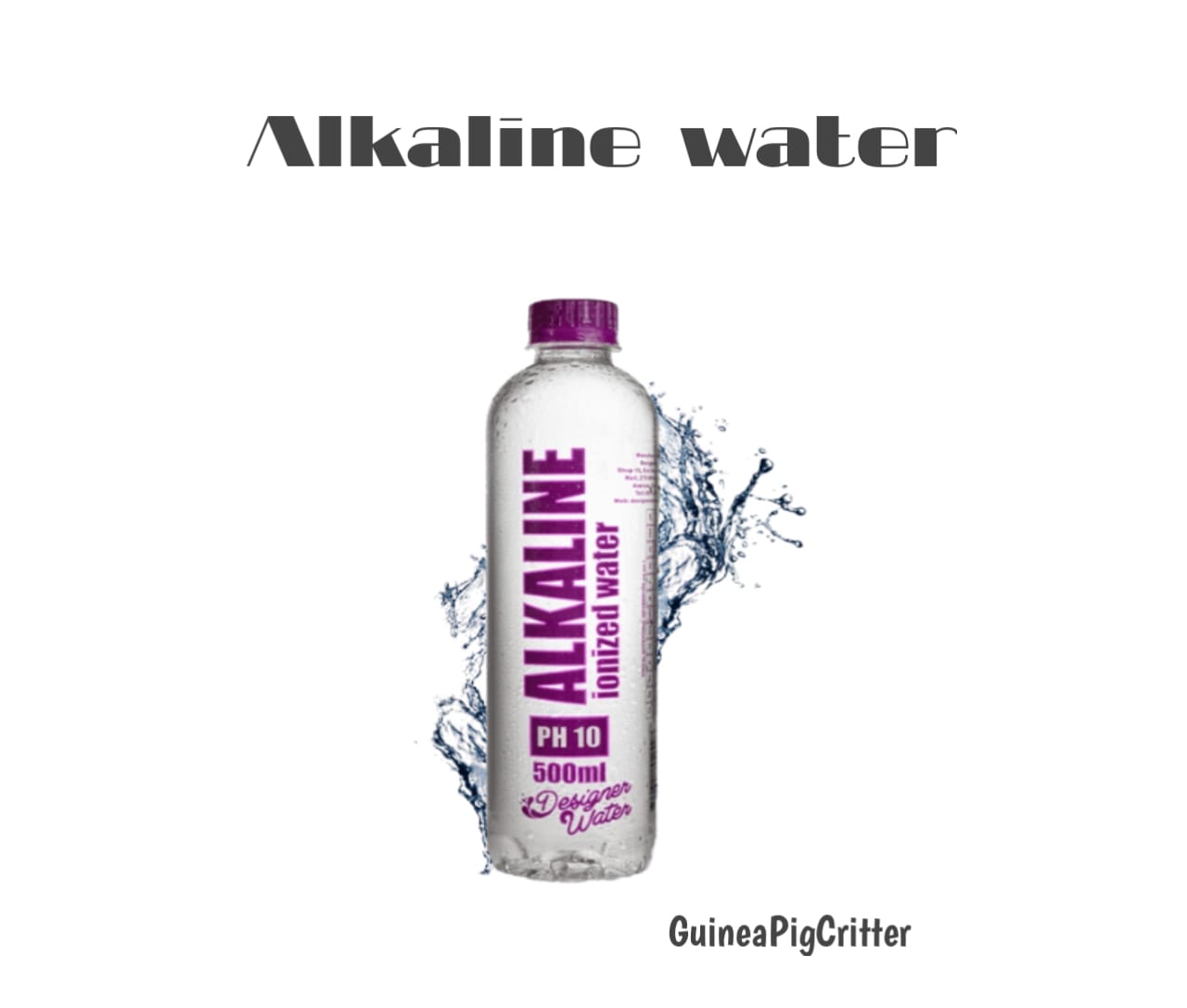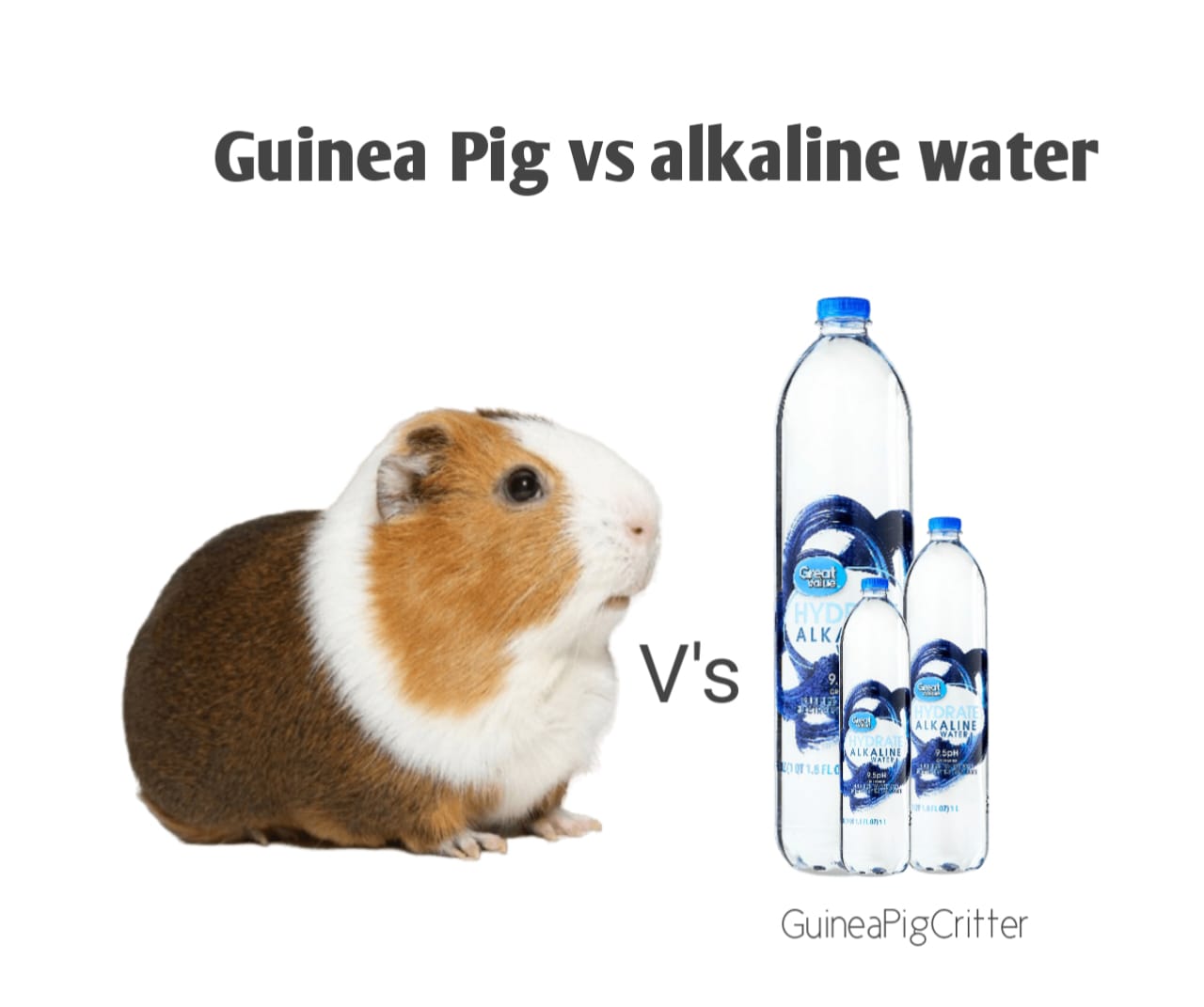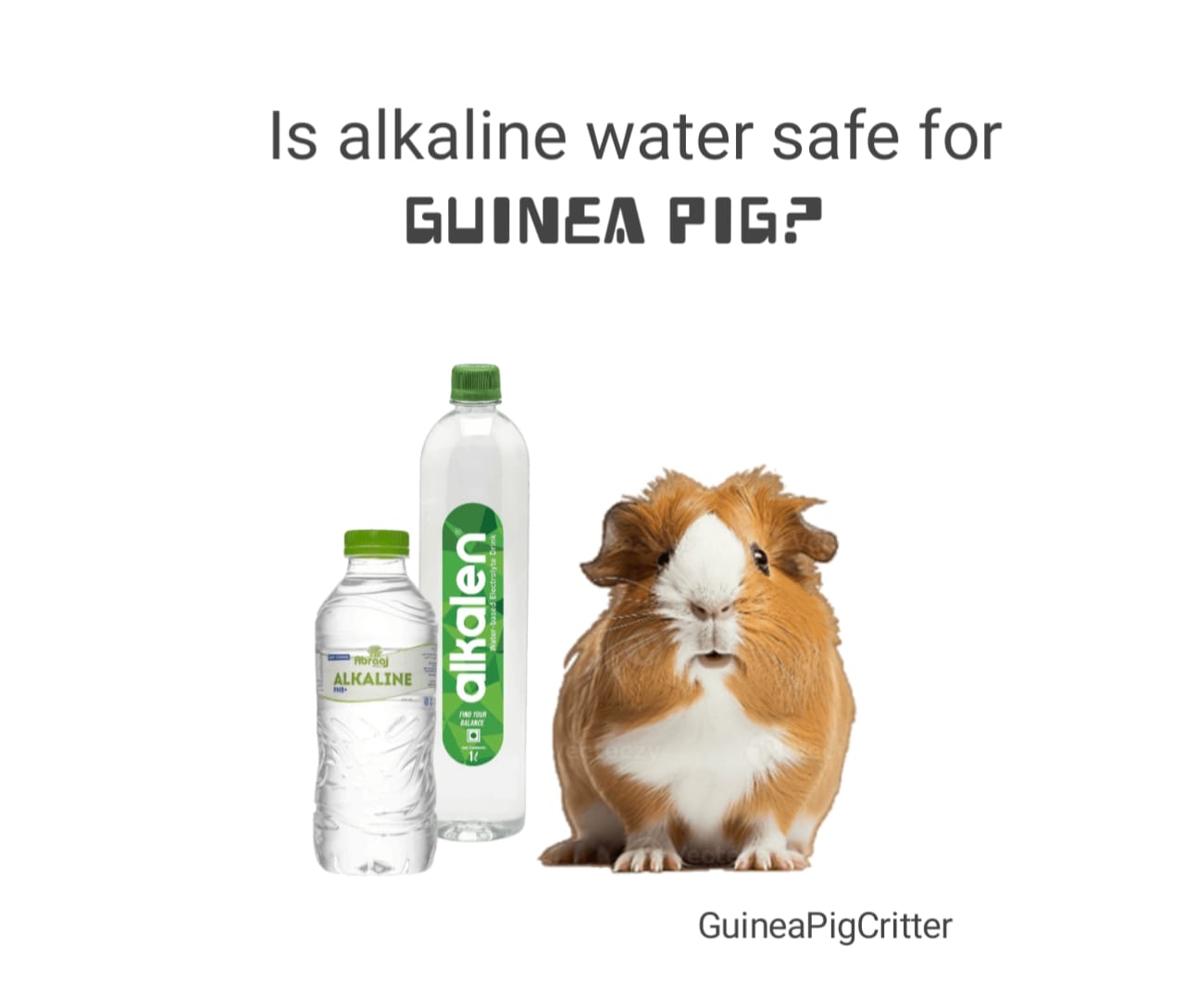Guinea pigs are very small and very delicate animals that must be given particular attention with regards to their feeding and watering. As guinea pig parents, our aim is to make their lives as enjoyable as possible through appealing food, warm shelters, and clear water. However, as health for people improves, many pet keepers do begin to think that their pets can also benefit from alkaline water and it is an option worth exploration.
Alkaline water, which possesses a higher ph than ordinary water and purported benefits for human health, is rapidly gaining prominence. Some pet owners may even consider offering it to their guinea pigs. However, it is critical to have a full understanding of the benefits and risks associated with treating a pet, particularly such as fundamental as providing water, before changing the diet.
In this blog post, we’ll discuss what alkaline water is and how it might affect the health of guinea pigs in addition to establishing if it is a good option of hydration for your little pet.
What exactly is alkaline water?
Alkaline water has a higher ph than regular tap water, which is a notable difference. The word ‘alkaline’ primarily indicates ph levels in reference to water on a scale from zero to fourteen, with one being the most acidic and fourteen being the most basic/alkaline.
The neutral ph level of most tap water is 7. The level of alkaline water is different as this one has a ph level of 8 or 9.
Some experts of alkaline water claim that this type of water has certain health benefits especially for human beings. The possible suggestions have been:
Alkaline water and acidity: as alkaline water has got high ph hence there is a notion that these waters can balance the acidity in the human body, thus overall health is enhanced.
Antioxidant properties: alkaline water is believed to contain minerals that are able to act as antioxidants, and fight off free radicals in the body.
Alkaline water can penetrate cell membranes and improve cellular hydration more effectively than regular water.
Based on what we have heard, these health benefits would be good news to most people, however, these claims have little scientific evidence to support them. But does it then suggest that alkaline water would be good or even good for guinea pigs?
Guinea pigs’ natural hydration needs
The next thing that has to be looked into before one goes offering alkaline water to guinea pigs is what guinea pigs need in their natural form to be healthy and hydrated.
Guinea pigs, like all other animals also require clean and fresh water for their normal functioning to be healthy. Water plays a role in enabling the kidneys, digestive system and the general life processes to function properly. The diet of the guinea pig is primarily herbaceous, consisting of hay, vegetables and fruits. Most of the liquids they consume get replenished through water consumption, although some of it comes from the intake of raw vegetables.
Hydration requirements
Guinea pigs are reported to drink water at approximately 50-100ml of water per 1 kg of body weight in a day. The amount of water a guinea pig or any animal for that matter imbibes is subject to fluctuation depending on variables such as age, size, diet and the climatic region in which the guinea pig resides. Like in human beings, water is necessary for gobbling up, for thermoregulation, and for the excretion of urine and faces.
Why regular water is best
The answer to this question is quite simple. The only thing what guinea pigs require is fresh clean water. Raw tap water is often used by a majority of owners because it is more convenient and safer than other means to give water to the animals and it reduces exposure to chemical substances such chlorine or excessive quantities of minerals. Thirsty guinea pigs quickly receive what they need to drink due to cleaning the water without any additions to the sausage. This contributes to keeping the health of guinea pigs.
Can guinea pigs safely drink alkaline water?
It is possible that the practice of providing guinea pigs with alkaline water started with the misconception that what works and is beneficial for humans will also work and be beneficial for pets. This is however not entirely correct as guinea pigs do have different bodies and their systems operate in a different manner. Although there is little if any literature directly concerning the effects of alkaline water on guinea pigs and their welfare, there are certain risks we can make inferences on given their biological composition as well as the fact that we do know what their hydration requirements are.
Possible negative effects of alkaline water
Gastrointestinal homeostasis
Many guinea pigs do have sensitive digestive tracts which maintain a homeostatic balance that is slightly acidic. There is a reason as to why their bodies are used to a certain acidity range and having water with a high ph in it may knock that balance off. Since alkaline water tends to be more basic compared to regular water, there is a possibility that it might alter their digestive system resulting in them suffering from a number of gastrointestinal problems such as diarrhea and or bloating as well as other forms of discomfort.
Kidneys assist the body in removing wastes and controlling water in the homeostasis of guinea pigs. They also assist in the regulation of levels within the body. Constant ingestion of alkaline water by a guinea pig will increase the of the body which will eventually require the kidneys to work harder to maintain equilibrium. This extra work could put additional strain on their kidneys, leading to a greater likelihood of developing kidney disease or urinary tract diseases.
Urinary tract in the cavies
The of a guinea pig’s urine is, by nature, slightly acidic so that bladder stones (urinary calculi) and infections can not develop easily. If a ingests alkaline water it may raise the of the urine and thus make this health issues possible bladder stones are one of the course problems in and one must avoid anything which increases its risk.
Research evidence
As of now there are no specific scientific studies which have examined the effects of alkaline water on guinea pigs. Nonetheless, little pets such as guinea pigs have wiry systems and changing the water which you give them would alter their natural routines so caution must be taken. In as much if alkaline water is consumed over a short time it appears a risk, prolonged exposure might develop certain risks for the health of the guinea pigs.
It is also important to emphasize however that most veterinarians would recommend only what is known to work and is safe i.e. clean and filtered water. The digestive and urinary systems of cavies have been optimized through years and using a different water might upset that order.
Possible risks and concerns
Because guinea pigs are small and susceptible creatures, even the slightest alteration in their surroundings, or dietary arrangements have implications. The following are considerations
Stomach acidity imbalance: issues with digestive system of guinea pig
Similar to almost all other species, providing the correct amount of acidity to the stomach of guinea pigs is vital to enable proper digestive activities. In their case, one of the major issues is with fibrous materials like hay. In contrast, alkaline water is on the more basic side, which is likely to have an adverse effect on the natural acidity of both the stomach and the intestines. This may hamper the entire process of digestion and absorption of nutrients and if not rectified can lead to lots of health complications in the long run.
Kidneys- high risk factor
All guinea pigs especially the older ones are highly prone to camel kidney issues. In case a guinea pig has been consuming alkaline water frequently, the kidneys will be forced to perform excessive work to retain the correct body ph levels. Over a period of time, this can result in a case of kidney strain which can often escalate to kidney failure— a common problem in many older guinea pigs.
Bladder stones- controversy
Guinea pigs are infamous for their eventual suffering from bladder stones, which once more are highly painful and pose a life risk if not cured early on. If there is a disturbance due to alkaline, it is possible that the level and number of bladder stones increases. These stones may go on block the urinary tract altogether and at times surgical removal is very necessary, due to these reasons: one should try and avoid anything which raises the risk at all.
Unknown long term effects
The long-term effects of consuming alkaline water in guinea pigs has not yet been studied. This means that any benefits are pure speculation. The risks, on the other hand, though not conclusively demonstrated, are already considerable in allowing pet owners to think twice. In such a situation where there is no firm evidence, it is much wiser to play it safe and go with what is already established to have no danger.
Recommendations: stick with something that is secure
All pet owners, including those who have guinea pigs as pets, will always want the best for their pets. What they should not do is experiment on certain trends, even if it is believed that the trend is healthy for people. From what is known at this time, it is advisable not to offer alkaline water to your guinea pigs. Here’s what you can do instead:
Filtered water
The use of fresh and clean filtered water will be the best and most appropriate approach to take. This is because, when one filters the water, any dirt or undesirable chemicals is removed so that the pet has access to clean and neutral water that is safe for its consumption.
Their water intake can be observed
Water should be ever available to your guinea pigs, making sure they always have the correct amount of water they require. Their bowl or water bottle should be checked once a day, making sure to refill it if there aren’t many drops left in it. If there is a decline in the amount of water taken in by them, it might be an indication that they have underlying health problems, and you should watch how much water they consume.
Conclusion
Most people easily assume that because alkaline water is good for human beings, it will also be good for guinea pigs, but that is wrong. Their weak digestive and urinary systems are fully equipped to deal with regular water, alkaline water would be an uncalled for change and may cause problems. The best way to maintain hydration in your guinea pigs is to provide them with fresh, clean water every single day. To prevent any unforeseen complications when it comes to the health of your furry friend, common sense should always be the basis.


